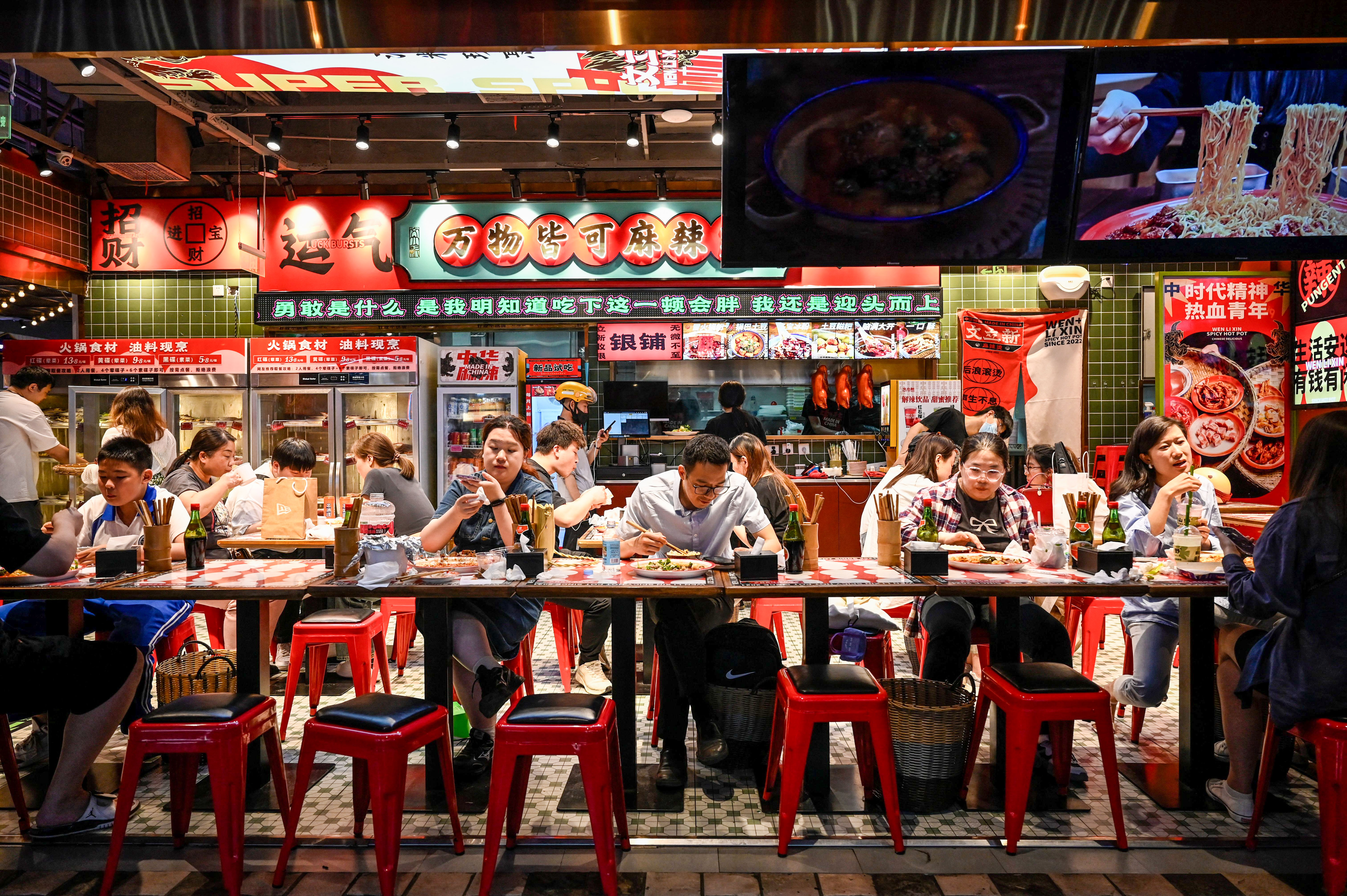News Analysis
China’s dumping practice has expanded beyond tangible goods, with Chinese restaurant chains aggressively pricing their way into overseas markets.
Sun Kuo-Shyang, a scholar of Asia–Pacific studies, warns that this emerging form of dumping—services cheaper than the domestic price levels in the recipient countries—will disrupt global markets and warrant timely responses from the international community.
One prime example is Mixue Ice Cream & Tea, a popular Chinese chain specializing in ice cream and tea drinks. “Mixue” means sweet snow in Chinese. The company is gearing up to enter the U.S. market, and its low-price strategy has already caused significant disruption in Southeast Asia.
For example, Mixue’s super-low prices in Vietnam triggered complaints from its franchisers. Dozens of Mixue’s franchise owners in the country protested last September, saying the brand’s requirements of regular discount promotions were unreasonable for their investment return, according to Chinese state media reports.
After establishing nearly 4,000 stores in Asia–Pacific countries, the company now plans to expand its franchise network into the United States, emphasizing its “value-for-money advantage” as a key competitive edge.
Some China experts have cautioned that the influx of low-cost food services from China is a feature of China Shock 2.0, driven by the country’s low domestic demand and its relentless price-war mentality. They believe this trend will persist as China’s economy continues to decline, urging governments in affected countries to introduce measures to protect their local businesses.
China’s Low-Cost Leader Enters Global Market
Founded in 1997 by brothers Zhang Hongchao and Zhang Hongfu, Mixue has emerged as a leader and winner in the price war among China’s beverage chains. Its introduction of new products, such as a 22-ounce iced beverage priced at just one yuan ($0.14) per cup, has forced competitors to lower their prices.
As of September 2023, the company boasts more than 30,000 stores nationwide, most of which are franchised. The company provides its franchisees with ingredients, packaging, and equipment; franchise operations account for nearly all its revenue.
Mixue began its international expansion six years ago, exporting its aggressive pricing tactics to overseas markets.
The company expanded rapidly after opening its first overseas store in Vietnam in 2018. By 2023, it had 1,000 locations in Vietnam and extended its reach to Southeast Asia, South Korea, Japan, and Australia, bringing its global store count to almost 4,000.
The brand’s strategy is to offer low-priced products aimed at young consumers. In Vietnam, for example, a cup of Mixue’s popular lemon tea costs around $0.66, and its ice cream sells for approximately $0.39—which is 30 percent to 50 percent cheaper than local competitors such as the Vietnamese bubble tea franchise ToCoToCo.
Sun, an assistant professor at Taiwan’s Nanhua University, said Mixue’s low-cost approach negatively impacts local small- and medium-sized food businesses, harms market diversity and innovation, and could ultimately trigger anti-dumping investigations that result in trade barriers.
“While it benefits consumers by providing cheaper options, it can also lead to a decline in quality and disrupt traditional food cultures,” Sun told The Epoch Times.
The brand’s low prices have led franchised stores to cut corners.
In the first half of 2023, according to Chinese media reports, 28 Mixue stores in Beijing were reported for food safety violations, ranking first among chain restaurant brands. The violations included failure to wear gloves as required, improper food storage, and the use of unclean ice scoops in ice machines that were not properly washed or disinfected before use.
Weak Chinese Demand Drives Low Prices
Mixue is not alone in this trend. Other Chinese food service brands, such as Cotti Coffee, the Chinese milk tea chain Chagee, and the hotpot chain Haidilao, have also expanded aggressively into Southeast Asia.
David Huang, a U.S.-based economist, attributes China’s long-standing fierce price wars to the country’s low domestic demand, which pressures business owners to compete through lower prices.
Despite China’s economic growth over the past two decades, the average income of Chinese citizens has not improved significantly in recent years.
In May 2020, at a press conference following the conclusion of Beijing’s annual plenary sessions, known as the Two Sessions, then-Premier Li Keqiang said that there were more than 600 million people in China whose monthly income was less than 1,000 yuan ($138).
A report released by the ruling Chinese Communist Party (CCP) in 2023 claimed that 964 million people in China had a monthly income of less than 2,000 yuan ($276).
However, due to Chinese authorities’ past record of underreporting and covering up information, it is difficult to assess the actual income data.
Huang pointed out that the CCP has not prioritized raising incomes for the general population. Instead, it has focused on expanding the overall economy through a centralized, planned approach. An example is
China’s steel industry, which alone accounts for more than half of the world’s total production.
Huang went on to say that the CCP views the low incomes of ordinary Chinese citizens as an advantage.
“By maintaining widespread poverty, the authorities have been able to exploit this labor force at minimal cost—people work long hours, often in jobs they find unpleasant or undesirable, fueling China’s economic engine while keeping labor costs low,” he told The Epoch Times.
China Shock 2.0
Sun said the expansions of these Chinese brands can be seen as part of China Shock 2.0, as their low prices have created significant challenges for local competitors.
“China Shock” refers to the mass job losses in many countries, particularly in manufacturing sectors, when an influx of cheap Chinese-made goods entered the global markets after China joined the World Trade Organization in 2001.
“Unlike the previous wave, which was focused on manufacturing, this new disruption extends to the service and consumer sectors, creating new challenges for local businesses. Many small businesses will struggle and may face closure,” Sun said.
Southeast Asian countries have taken notice.
In Thailand, where Mixue has opened 200 outlets in less than two years, the country’s Restaurant Association has openly expressed concern about the influx of Chinese-owned businesses.
The Federation of Thai Industries, specifically its Food and Beverage Industry Division, has raised alarms over the rapid rise of low-cost Chinese restaurant chains, warning that it could harm the domestic food service industry. Additionally, the federation has called on the government to ensure the safety and compliance of imported ingredients and to strengthen measures against the dumping of cheap service.
In Vietnam, local chain ToCoToCo has faced declining sales among young consumers due to the intense competition from Chinese brands. According to local media reports, the company has suffered three consecutive years of losses, forcing it to adjust its business strategy.
Sun suggests that countries affected by China Shock 2.0 may soon implement policies to limit the impact of cheap Chinese brands to protect domestic markets and support local businesses.
Vietnam and Thailand have recently strengthened their anti-dumping measures against Chinese goods. However, current anti-dumping laws in both countries primarily focus on tangible goods, with no specific regulations targeting services provided by Chinese brands.















